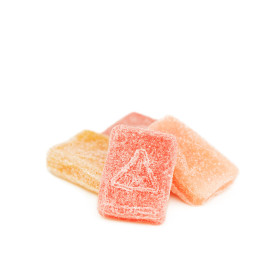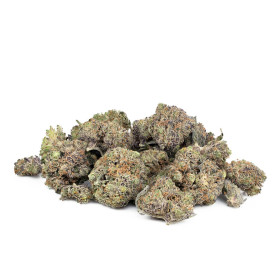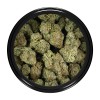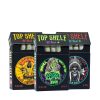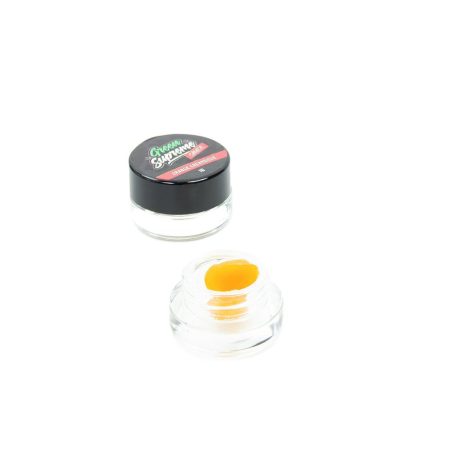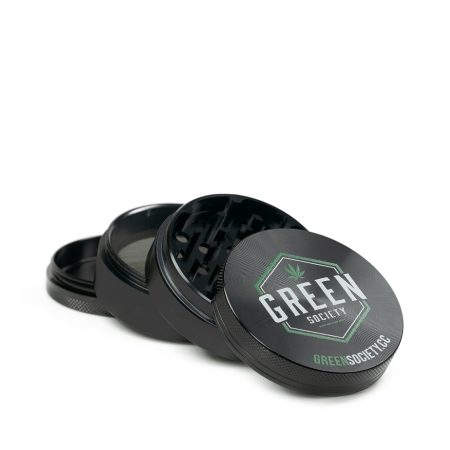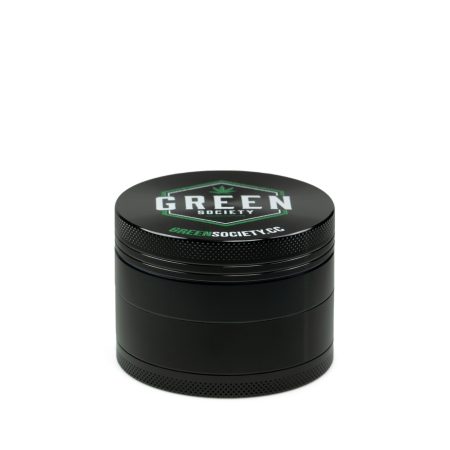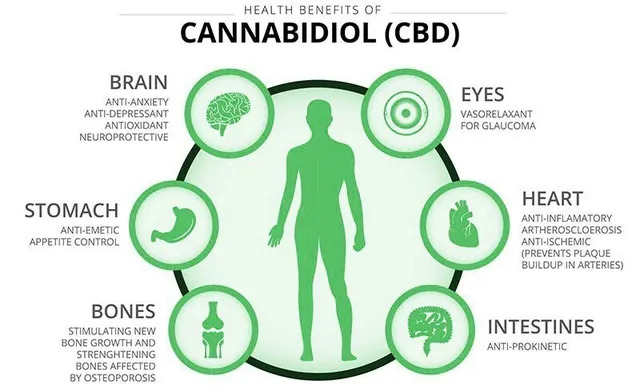Cannabinoid, or CBD as it’s more often known, is a chemical compound discovered in hemp and cannabis plants. You can now get CBD oil in various capsules, vape oil bases, tinctures, edibles, and cosmetics like bath bombs and lotions.
Unlike its more famous relative, THC, CBD has no psychotropic or intoxication effects. CBD oil and other CBD products have been touted as a potential treatment for many symptoms, including chronic pain, inflammation, migraines, epilepsy, autoimmune illnesses, depression, and anxiety.
Keep reading this article to learn more about CBD and its benefits.
Health Advantages of Cannabidiol
CBD has been praised for a broad range of health problems. Still, the greatest evidence is its usefulness in treating severe forms of pediatric epilepsy, including Dravet syndrome and Lennox-Gastaut syndrome (LGS), which do not respond to standard antiseizure drugs.
In several trials, CBD was found to lessen the severity of seizures significantly and even halt them entirely. It is essential to know how weed became more and more relevant throughout history. In fact, Epidiolex is the first FDA-approved cannabis-derived drug for these indications, and it includes CBD.
Preliminary evidence from animal studies, anecdotal accounts, and human studies suggest that CBD may also be useful for:
1. Anxiety reduction due to cannabidiol (CBD) is the subject of current scientific research. Not only that, but it’s crucial to understand the various methods of cannabis use.
2. Insomnia. Scientific evidence suggests that cannabidiol (CBD) may aid in both initiation of sleep and the maintenance of REM sleep.
3. Constantly suffering from discomfort. There has to be more research done on humans before you can say for sure that CBD does aid with pain management. According to animal research published in the European Journal of Pain, topical use of CBD can help reduce arthritis-related pain and inflammation.
4. Addiction. Some studies on humans suggest that CBD may help mitigate cigarette and heroin withdrawal symptoms. The results of animal studies on addiction show it may also reduce desires for alcohol, cannabis, opioids, and stimulants.
Effects of CBD Oil
Oil containing CBD produced from the Cannabis Sativa plant is often combined with a neutral carrier oil, such as hemp seed oil, before being ingested. A recent poll of 2,000 American adults by Forbes Health found that 60% of respondents have used CBD before, with 55% using CBD oils and tinctures specifically.
Cannabis sativa plant derivatives are referred to collectively as “medical marijuana” because of their usage in treating medical problems. Therapeutic medical cannabis, or medicinal marijuana, goes by both names.
There are several bioactive chemicals in Cannabis Sativa. In particular, cannabidiol (CBD) and delta-9 tetrahydrocannabinol (THC) is widely recognized as the most prominent (CBD). Most of the psychoactive effects of marijuana come from THC.
Prevent Dangerous Neurological Disorders
Clinical and preliminary research points to CBD’s antioxidant and anti-inflammatory benefits and helps your mood disorders. From these features, scientists have deduced that neuroprotection, or protection against a wide range of clinical illnesses, can be derived.
Several in vitro and animal research show that pure CBD may have therapeutic health benefits of CBD against neurodegenerative disorders, including Parkinson’s, Alzheimer’s, and multiple sclerosis. In addition, tests were conducted on Huntington’s disease and cerebral ischemia, but no conclusive positive findings were found.
Some pure CBD producers have drawn the attention of the authorities because of unsubstantiated claims that their product can treat everything from cancer to COVID-19. More studies are needed, but CBD shows promise as a non-addictive treatment for various unpleasant conditions.
Reduce the Impact of Arthritis
Tissues in and around your joints degenerate due to arthritis. Generally, arthritis can affect every joint in the body and causes discomfort, stiffness, and sometimes even immobility. The primary goals of treating arthritis are symptomatic alleviation and functional enhancement of affected joints.
Patients with rheumatoid arthritis showed significant increases in sleep quality and prevented disorders, pain, and discomfort at rest when given Sativex, a botanical medication containing CBD.
Relieve Stress and Sadness
The most well-known impact of CBD interactions is its calming qualities, which account for its broad adoption. Before giving their presentations, some participants were given a placebo, while the others were given either 150 milligrams, 300 milligrams, or 600 milligrams of CBD.
Anxiety levels were much lower during the test for individuals who got 300 mg of CBD than those who received a placebo. Interestingly, the 150 and 600-mg CBD groups reported more test anxiety than the 300-milligram CBD group.
Additionally, more research found that CBD had effects analogous to the antidepressant imipramine. However, human trials are necessary to determine whether or not CBD can provide the same antidepressant effect in humans.
Change Selected Cases of Epilepsy
There are cases in which cannabidiol (CBD) can be used to treat epileptic seizures effectively. As of 2018, kids at least 2 years old with the uncommon types of epilepsy known as Lennox-Gastaut syndrome and Dravet syndrome can utilize CBD medication marketed to treat seizures.
Studies that have been thoroughly reviewed provide the foundation for the FDA’s conclusion. Five hundred and sixteen patients with Lennox-Gastaut or Dravet syndrome participated in these studies, and they all got either Epidiolex or a placebo.
When used with other drugs, Epidiolex reduced the frequency of seizures in individuals compared to the placebo.
Tend to Symptoms of Post-Traumatic Stress Disorder
A 2018 study with 11 PTSD patients reported an eight-week course of CBD therapy in addition to regular psychiatric care. In fact, 10/11 individuals observed that PTSD symptoms improved.
Medical marijuana and CBD expert Dr. Margaret Rajnic stresses the need for treatment with medical cannabis and CBD for PTSD. She explains that “there is a need for counseling” for PTSD. But CBD will provide you with a modicum of relief from your worry.
Four other human studies support the idea that CBD helps alleviate PTSD symptoms. However, three of these studies also included tetrahydrocannabinol, the primary psychoactive component of medical cannabis.
Known as the “entourage effect,” the synergistic effects of THC and CBD increase the efficacy of both compounds. To reduce the “high” from THC, you can take CBD simultaneously, whereas adding a small amount of THC to a large amount of CBD boosts the benefits of CBD.
Soothe Unbearable Pain
For treating central neuropathic pain associated with multiple sclerosis, Canada approved the use of Sativex in 2005. Sativex is an oromucosal (absorbed in the mouth lining) spray containing equal amounts of THC and CBD. It wasn’t until 2007 that Canada again permitted the drug’s use to treat cancer-related pain resistant to previous treatments.
Meanwhile, ongoing research in the United States points to CBD’s efficacy in managing chronic pain that isn’t caused by cancer. Patients with symptomatic peripheral neuropathy (caused by damage to nerves in the brain or spinal cord) were given CBD oil topically in one 2020 trial. In contrast, another group with the same illness got a placebo.
People who used the topical CBD had significantly fewer instances of severe pain and fewer instances of chilly, itching feelings than those who received the placebo. Any of the test subjects noted no negative reactions.
CBD oil used topically has less of an impact on the underlying problem than if it were ingested. Instead, pain relief with topical CBD is targeted more specifically to the affected location. Because of its more direct nature, it may be more effective.
Diffuse Diabetic Complications
CBD reduces cellular damage produced by high glucose levels in human cell culture trials, a risk factor for diabetes and its complications.
The authors concluded that further research is needed to determine CBD’s potential advantages for people with diabetes, diabetic complications, and atherosclerotic plaque development.
Additionally, 13 non-insulin-treated individuals with type 2 diabetes were given CBD and a placebo in separate, smaller research.
CBD enhanced glucose-dependent insulinotropic peptide and decreased resistance levels (a protein that promotes resistance to insulin, the protein that controls sugar levels). Based on these findings, CBD may be useful as a natural therapy for diabetes since it affects insulin levels.
Is CBD Safe?
CBD can cause negative reactions, including nausea, tiredness, and irritation. Due to CBD’s competition with the liver enzymes responsible for breaking down blood-thinning and other medications, blood concentrations of these pharmaceuticals may increase. Some medications have a similar interaction with grapefruit.
High doses of CBD in humans have been associated with abnormalities in liver-related blood tests. Acetaminophen (Tylenol) and many other over-the-counter medications work similarly. That’s why it’s important to talk to your doctor about your CBD use.
Conclusion
The government is looking into several CBD companies for making unsubstantiated claims, including that CBD can be used in cancer treatment and COVID-19. We need more study, but CBD shows promise as a reasonably safe way to deal with issues including anxiety, sleep disorders, and chronic pain.


